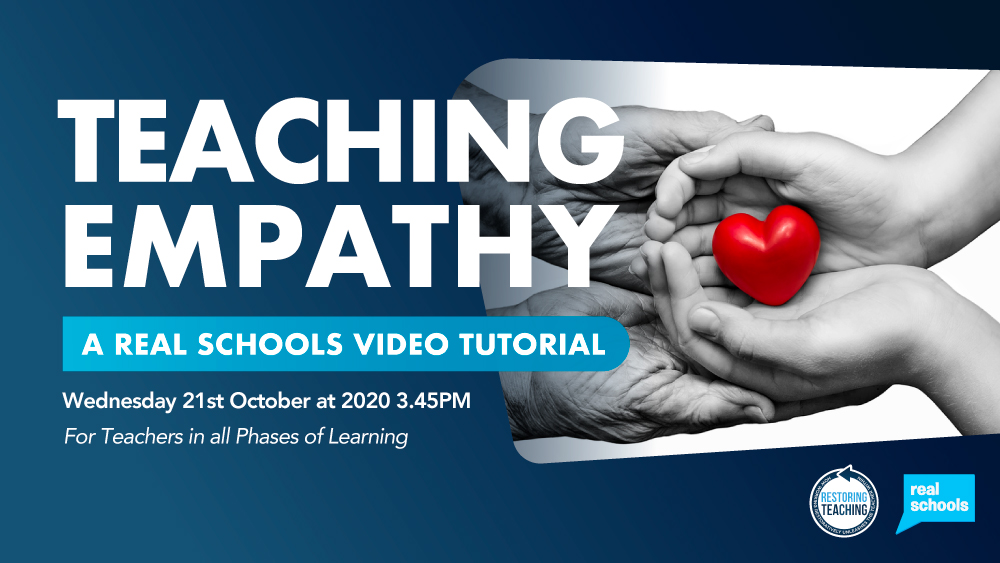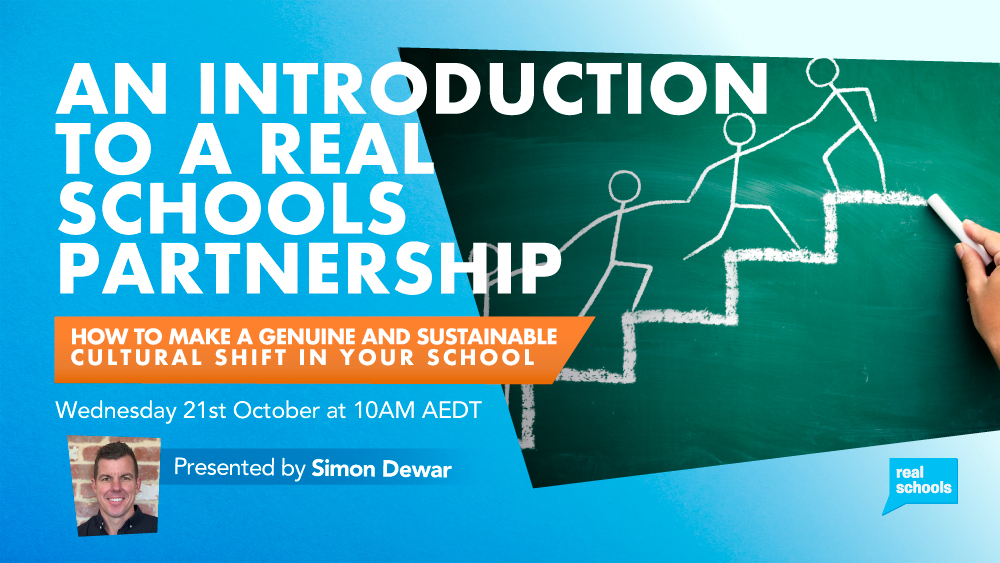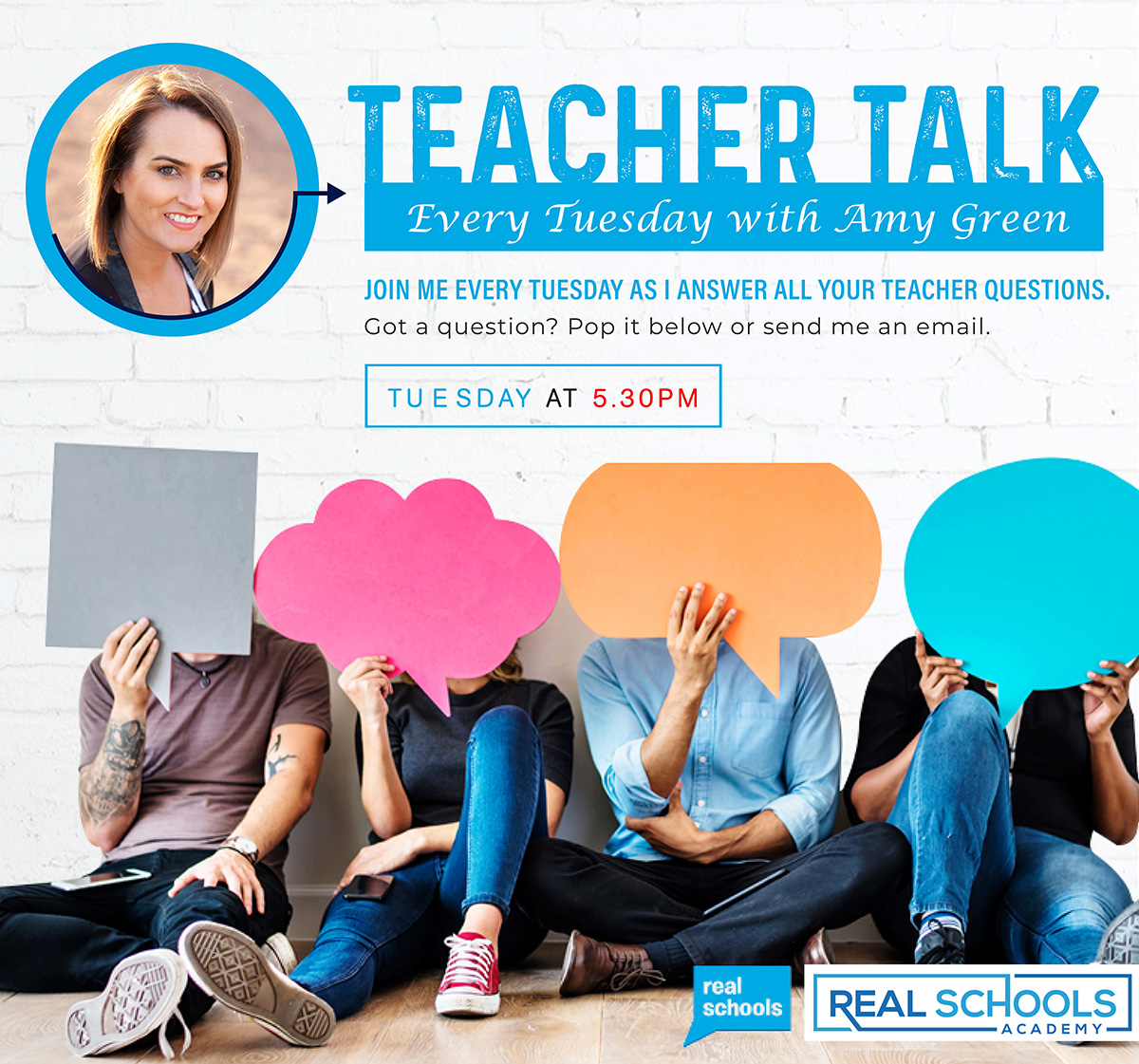Guy Kawasaki said that “Ideas are easy. Implementation is hard.”
I reckon he was onto something. Too often we enthusiastically seek a new horizon or step into a new program without an adequate plan for implementation. And when we fail … we sometimes blame the idea or the program.
But it was really only the implementation that was the problem. Today’s Goodie Bag expresses our bent for implementation over ideation.
I hope it’s useful!
GIFTS
 Students who are empathic are so much easier to work with.
Students who are empathic are so much easier to work with.
Chiefly, this is because they have the higher-order thinking habit of predicting how their behaviour affects others.
Every teacher deserves to know how you can achieve this … as much for themselves as their students! Register here
 School Leaders – If you’re looking to achieve long-term success at your school, join Simon for a webinar on Wednesday at 10am to hear about the benefits of a Real Schools Partnership. To register, click here
School Leaders – If you’re looking to achieve long-term success at your school, join Simon for a webinar on Wednesday at 10am to hear about the benefits of a Real Schools Partnership. To register, click here

Last week Amy chatted to you about implementing some strategies to avoid taking work home, this week she’s following that up with ways to make marking easier.
Join Amy on Tuesday at 5.30pm as she shares her top tips for managing marking, whist ensuring it is effective, moves learning forward and doesn’t take all night!
Got something on your mind?
Send Amy your questions for Teacher Talk at amy@realschools.com.au
OPPORTUNITIES
Real Schools Academy – Intensive Courses
Real Schools Academy Intensive Courses for Term 4 are beginning on October 26th. It hasn’t been the best year for attending PL, so we are making it easier by bringing the learning to you.
3 Faculties, 18 courses and PL that will transform your practice. Plus, you choose your course, you learn at your own pace and you have the opportunity to connect with educators each week in our live Q&A catch-up sessions.
THOUGHTS by Adam Voigt
I’ve been thinking a fair bit lately about student suspensions and working on just how a focus on School Culture via Restorative Practices across groups of schools could help to bring down the number of students suspended, the total days suspended and the
likelihood of recidivism.
For too long, Restorative Justice has been touted as some alternative to suspending students. It isn’t. In fact, a strong restorative school model:
1. focuses on reducing suspensions via a culture that generates less suspension worthy incidents. It’s just not about suspending less or doing something restorative instead of suspending.
2. includes punishments and suspensions under a clear set of criteria inclined more towards consistently assessing harm than the impossibility of categorising offences.
This means we aren’t talking about Restorative Justice (something that you might do after a suspension worthy incident) at all. In schools, we should be focusing on Restorative Practice (something we can adopt as the driver of our ethos and culture).
The Middle Years are often the target when it comes to suspension data. So, here’s an interesting synopsis from RAND of two research projects that looked at the potentials of RP in regard to relationships, suspensions and other risky behaviours.
Of particular interest to me was the comment “But without clear expectations and strong support, teachers and staff might not feel equipped to use the practices to build stronger relationships.”
This stuff really works and in so many measurable ways. But do NOT cut corners on implementation. Your staff – and indeed your whole school community – deserve the fruits of the best outcomes we can possibly produce.
EPIPHANIES by Simon Dewar
The next time you talk about your Principal or your Teachers, just think about your choice of words or labels. Using the words “them” or “they” can create an unintended divide. No-one stands to win when there is a divide between leadership and staff. If you all see yourself on the same team, you’ll achieve more. Wherever possible, use the word “we”.
Warm regards,

